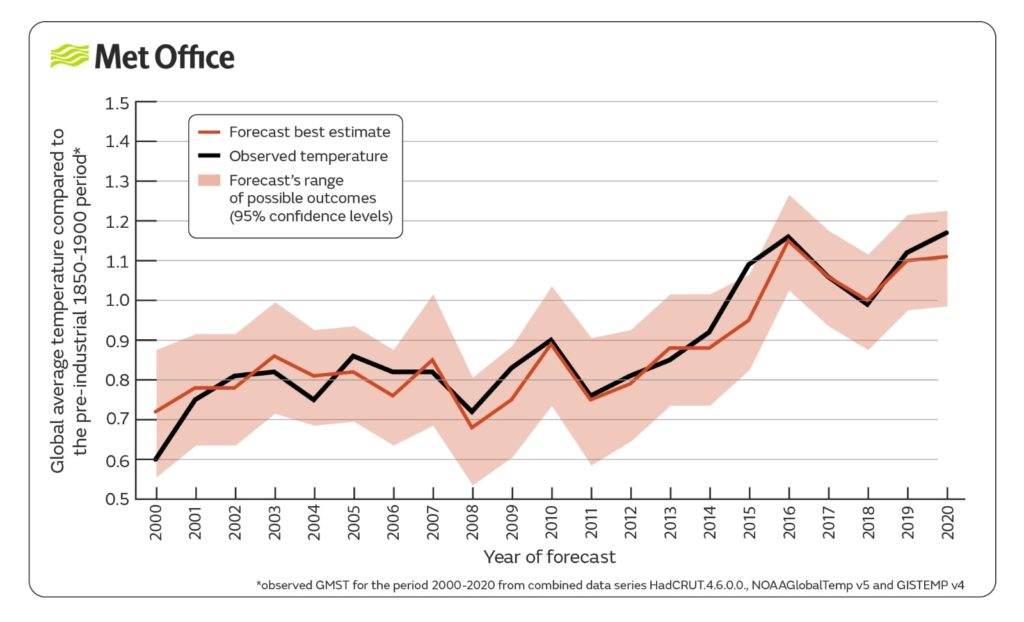According to meteorologists at the UK’s Met Office, the climate forecast for 2021 is slightly cooler globally than previous years, however it will still be one of the hottest on record due to the greenhouse gas effect.
—
What is Happening?
- The office says that the average global temperature for 2021 is forecast to be between 0.91C and 1.15C above pre-industrial temperatures, the seventh successive year when temperatures have exceeded or been close to 1.0C above pre-industrial levels.
You might also like: The Paris Agreement in 2020: Where Are We?

The global climate forecast for 2021 (Source: Met Office, 2020)
Adam Scaife, head of long-range prediction at the Met Office, says, “The global temperature for 2021 is unlikely to be a record year due to the influence of the current La Niña, but it will be far warmer than other past La Niña years such as 2011 and 2000 due to global warming.”
- This is slightly lower than some previous years since 2015, largely due to the influence of La Niña in the tropical Pacific, where sea surface temperatures are 1.0-2.0C below average. La Niña is the opposing side of El Niño and has a temporary cooling effect on global average temperature, by causing strong winds to blow warm surface water around the equator westward.
- La Niña will likely increase rainfall in Australia, Indonesia and eastern Asia, while drier conditions will likely occur in the southwestern US.
- However, next year is still predicted to be above 1°C relative to preindustrial levels. The Intergovernmental Panel on Climate Change has estimated a 0.2C increase in global temperature every decade since the industrial era, due to human activities.
- While 2016 remains the warmest year on record, 2020 and 2019 are both contenders for second place. The series of warmest years began in 2015; the first year when global temperatures exceeded 1.0C above the pre-industrial period.
- The forecast is based on the key drivers of the global climate, but it doesn’t include unpredictable events such as large volcanic eruptions, which would cause a temporary cooling.

















